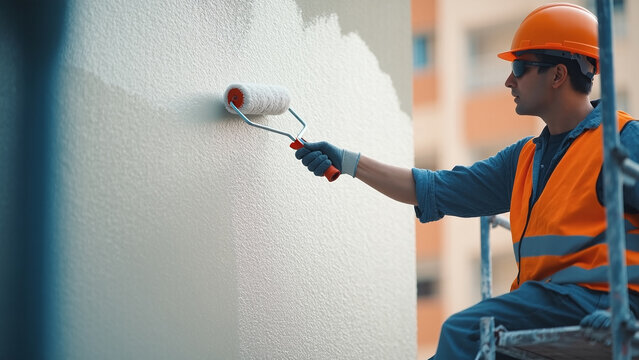One year after the Pride jersey saga, what have we learned?
While sport has the power to affect positive change, the NRL seems unlikely to wade into the issue again any time soon.

Contributors
Breaking News
It was Round 19 last year when Manly’s plans to wear a one-off pride-themed jersey promoting inclusivity were first revealed.
It was also the same Round where those plans became a media circus as players refused to wear the strip or promote the message, resulting in an eventual boycott of the upcoming game by players in unprecedented scenes, a toxic media debate that brought out the worst in a lot of people and persecution of religious views.
It was poorly-handled on all sides.
There were claims that the club had not consulted the players, accusations of bigotry and misinformation, and it ultimately cost Des Hasler his job at the club and - depending on who you believe - derailed the Sea Eagles' premiership aspirations.

Now here we are again, Round 19.
But instead of spending the past 12 months moving towards an outcome that could revisit the ideas of diversity and inclusion at some point in the future with the sensitivities from last year’s ordeal in mind, it appears that the NRL would be happier to never touch the issue again.
WALKING IT BACK
A mainstay of the Mardi Gras parade and celebrations for most of the last decade, the NRL’s application was rejected for the 2023 event. While that was reportedly due to the demand for places during a milestone celebration, the Manly saga and subsequent response are sure to have had some impact on that relationship. The NRL might still return to the parade, but the message was pretty clear.
All the progress made (or outrage generated, depending on your perspective) by the Macklemore performance at the 2017 GF? All the right-wing fury that a TV ad showing a same-sex kiss generated? Now virtually meaningless moves that may appear little more than token gestures in hindsight.
It looks like that one ill-fated incident may have had a deeper impact on rugby league’s standing in these matters than all the preceding years of movement the other way. There are no doubt many people who are happy with the outcome and see it as a ‘win’, while reiterating that sporting organisations should stay in their lane and move away from issues. 'Shut up and Play' - a misguided and close-minded attitude with centuries of evidence to the contrary.
This is by no means a claim that the NRL itself has moved towards bigotry or is actively pushing back against the idea of social progress, but its credibility in these matters has been inarguably damaged, and is amplified by the subsequent silence. That damage could have been avoided by simply avoiding the jersey and issue completely, and that seems to be the new approach to the topic of inclusion altogether.

Despite the issues, this year the NRL has still had enough conviction to commit themselves to a stance on the Indigenous Voice to Parliament - but even that evoked the usual cries that ‘sport should stay out of politics’ from people without enough awareness to know that the two have gone hand in hand for a long time.
With roughly 12 percent of NRL players having Indigenous heritage, taking a stance on the Voice makes sense.
Perhaps player representation has a role to play with policies as well. With 45 percent of players in the NRL having Pasifika heritage, and a large number of that demographic likely to have similar beliefs to the Manly players who boycotted the game, why would the NRL want to risk another similar incident that paints these young men as bigots in the eyes of some simply for adhering to their religious beliefs, while simultaneously alienating nearly half of their participation base?
If we say that there has been little to no LGBTQ representation in the game - which there hasn't really - critics would argue that this means the game doesn’t need to worry about doing anything.
And that’s exactly what they want.
PUCKING IT UP
We’re seeing something similar happen in American sports - and while we don’t follow the Yanks as much as we used to, you can be guaranteed that the current situation is being closely monitored by the NRL and clubs.
In America, where teams have an innumerable number of jerseys to wear during their insanely prolonged 82-game regular seasons, the NHL has decided to ban the idea of a pride jersey in association with matchdays altogether. That’s not just on the field during the game, with the ban extending to all warm-up kits and any other attire worn by the playing group on the field. The decision is allegedly in response to the criticism some players received after refusing to wear any pride clothing during last year’s initiative.
But to remove any perception of bias or that they're 'picking' their causes, the NHL has banned ALL specialty jerseys, including those worn for Black History Month, Women’s History Month, Military Appreciation Night, even the ones related to fighting cancer and more localised, community based celebrations.

Despite the annual dissenting groups, the NRL is unlikely to ban Indigenous Round or Anzac jerseys anytime soon, no matter how bad the Tigers stuff them up. Some NRL teams have up to seven or eight jerseys this year, as they do every year - but none of them will touch the issue of pride or inclusion.
The reason ultimately given by NHL Commissioner Gary Bettman for the blanket ban was that these jerseys, and the subsequent division, were an avoidable ‘distraction’ that undermined the very causes they were trying to promote.
It's also worth noting that vocal criticism has also created concerns that tackling issues like pride and inclusion can be bad for the bottom line. Though there’s little evidence of this impact on professional sporting organisations, the cautionary tale of Bud Light’s inclusive stance and the detrimental effect on sales is still a dominant narrative when it comes to the issue, even if it's just one out of thousands of brands that co-opted pride to promote their products.
THE FARTHER THEY FALL
This could in part explain the NRL’s stance on the matter, and why pre-season talk about ‘looking’ at a themed round that promotes inclusive ideals quickly evaporated as the season has progressed.
The NRL is in an outstanding position as a product, with ground attendance numbers and interest at all-time highs thanks in part to a quality competition. Why would they risk angering some of their most passionate supporters by engaging on a clearly divisive issue when there’s little to gain that they aren’t already getting? We’ve seen a microcosm of the conservative sentiments in the game with the support for The Voice, and you can be guaranteed Peter V’Landys doesn’t want to put any fuel on that fire.
‘Risk’, ‘distraction’, whatever term they use, it’s clear that sporting organisations like the NRL are starting to recognise how little they have to gain from wading into an issue that splits the population so passionately, at least in the current social, political and even economic climate. We're not saying that's a good thing, but the evidence is overwhelming. Even FIFA has banned rainbow armbands at the upcoming Women's World Cup.
While it might not even have a tangible impact on gate receipts or audience numbers, it creates the kind of discourse and brings out the most vocal people from both sides, with the game stuck in the middle. The product becomes secondary to the hyperbolic shouting on both sides.
The NRL already has enough risks and distractions with the players - Dylan Brown the latest example - and they’re starting to get quite good at managing those. Why the hell would they want to add further complication when it's clearly easier not to?
Many of us can recognise the important role that sport plays in shaping national discourse. It’s a way to bring to light the plight of struggling groups and deficiencies in our supposed egalitarian society. It can help - but only when it wants to, or when the crowds see fit - and it appears that both of those things aren’t a given any more.

You could argue there’s little to gain from reigniting the debate, and you’d probably be right. Then again, with a few lingering remnants of last year’s Pride jersey fiasco floating around online for between $400 and $700, there might be something to gain after all.










